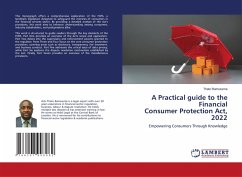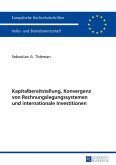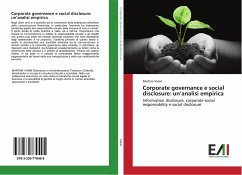Culture works on a broader canvas than many people would realize. The reporting and disclosure practice of firms is influenced by social and cultural norms that create a preference towards secrecy. In this book, I identify three dimensions of national culture that are linked to investors' payoff, and model strategic information disclosure as an equilibrium outcome of the interaction between the firm and investors. We find that the level of disclosure is positively related to individualism, and negatively related to masculinity and uncertainty avoidance. Under certain circumstances, too many noise traders would create a disincentive for the firm to disclose. Consistent with the model predictions, I construct a voluntary disclosure score for China and draw a comparison between China and the US using data from two world-wide surveys.
Bitte wählen Sie Ihr Anliegen aus.
Rechnungen
Retourenschein anfordern
Bestellstatus
Storno








